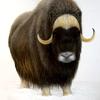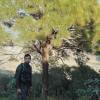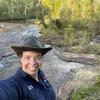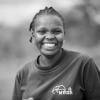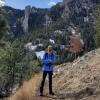With new technologies revolutionizing data collection, wildlife researchers are becoming increasingly able to collect data at much higher volumes than ever before. Now we are facing the challenges of putting this information to use, bringing the science of big data into the conservation arena. With the help of machine learning tools, this area holds immense potential for conservation practices. The applications range from online trafficking alerts to species-specific early warning systems to efficient movement and biodiversity monitoring and beyond.
However, the process of building effective machine learning tools depends upon large amounts of standardized training data, and conservationists currently lack an established system for standardization. How to best develop such a system and incentivize data sharing are questions at the forefront of this work. There are currently multiple AI-based conservation initiatives, including Wildlife Insights and WildBook, that are pioneering applications on this front.
This group is the perfect place to ask all your AI-related questions, no matter your skill level or previous familiarity! You'll find resources, meet other members with similar questions and experts who can answer them, and engage in exciting collaborative opportunities together.
Just getting started with AI in conservation? Check out our introduction tutorial, How Do I Train My First Machine Learning Model? with Daniel Situnayake, and our Virtual Meetup on Big Data. If you're coming from the more technical side of AI/ML, Sara Beery runs an AI for Conservation slack channel that might be of interest. Message her for an invite.
Header Image: Dr Claire Burke / @CBurkeSci

Explore the Basics: AI
Understanding the possibilities for incorporating new technology into your work can feel overwhelming. With so many tools available, so many resources to keep up with, and so many innovative projects happening around the world and in our community, it's easy to lose sight of how and why these new technologies matter, and how they can be practically applied to your projects.
Machine learning has huge potential in conservation tech, and its applications are growing every day! But the tradeoff of that potential is a big learning curve - or so it seems to those starting out with this powerful tool!
To help you explore the potential of AI (and prepare for some of our upcoming AI-themed events!), we've compiled simple, key resources, conversations, and videos to highlight the possibilities:
Three Resources for Beginners:
- Everything I know about Machine Learning and Camera Traps, Dan Morris | Resource library, camera traps, machine learning
- Using Computer Vision to Protect Endangered Species, Kasim Rafiq | Machine learning, data analysis, big cats
- Resource: WildID | WildID
Three Forum Threads for Beginners:
- I made an open-source tool to help you sort camera trap images | Petar Gyurov, Camera Traps
- Batch / Automated Cloud Processing | Chris Nicolas, Acoustic Monitoring
- Looking for help with camera trapping for Jaguars: Software for species ID and database building | Carmina Gutierrez, AI for Conservation
Three Tutorials for Beginners:
- How do I get started using machine learning for my camera traps? | Sara Beery, Tech Tutors
- How do I train my first machine learning model? | Daniel Situnayake, Tech Tutors
- Big Data in Conservation | Dave Thau, Dan Morris, Sarah Davidson, Virtual Meetups
Want to know more about AI, or have your specific machine learning questions answered by experts in the WILDLABS community? Make sure you join the conversation in our AI for Conservation group!
No showcases have been added to this group yet.
Co-founder @ Behold
- 0 Resources
- 4 Discussions
- 6 Groups
- @Lilli
- | she/her
Ocean nerd, personally and professionally 🌊Engagement Coordinator for FathomNet and FathomVerse
- 2 Resources
- 3 Discussions
- 7 Groups
Sea Mammal Research Unit Univ' St Andrews
I work in marine bioacoustics with a focus on the conservation of marine mammals. Most of the time I'm developing and using passive acoustic technology to study the underwater behaviour of dolphins and porpoises. I'm also a keen developer on the PAMGuard project.

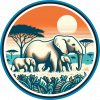

- 0 Resources
- 23 Discussions
- 6 Groups
BirdLife International
I deliver policy and advocacy components of cross-regional projects and initiatives concerning international site-based conservation, including through international mechanisms such as the Ramsar Convention, Convention on Migratory Species (CMS) and World Heritage Convention.
- 0 Resources
- 0 Discussions
- 4 Groups
- @billoxbury
- | he/him
Mathematician and data/AI scientist, interested in environmental applications; wildlife photographer and volunteer.
- 0 Resources
- 0 Discussions
- 1 Groups
- @TheDataEnthusiastic
- | He/Him
Hi, I'm pursuing Master's in Data Science. And I want work help protect nature and wildlife.
- 0 Resources
- 0 Discussions
- 13 Groups
World Wide Fund for Nature/ World Wildlife Fund (WWF)

- 0 Resources
- 12 Discussions
- 15 Groups
- @Alejandro
- | He
This climate crisis does not have to be a story of loss but rather a story of redemption, rebirth, and change. My paintings capture the spiritual nature, the grounding energy of our shared existence with the natural world. AML-ART.COM
- 0 Resources
- 0 Discussions
- 3 Groups
- @jodirowley
- | she/her
Conservation biologist obsessed with frogs
- 1 Resources
- 0 Discussions
- 5 Groups
Sound art and design
- 0 Resources
- 1 Discussions
- 2 Groups
- @apcxs
- | He, his, them
- 0 Resources
- 0 Discussions
- 11 Groups

- 1 Resources
- 5 Discussions
- 9 Groups
Researchers and conservationists are embarking on a bold initiative to save the world's most trafficked wild mammal — the pangolin
16 February 2023
A machine learning-based solution that can segment the Prosomes and Lipid sacs with sufficient accuracy helps to recognize the ecological plasticity of key Arctic copepods. It allows scientists to learn more about the...
15 February 2023
A pilot program in Oregon’s Willamette Valley will test how well artificial intelligence-enabled sensors can identify and characterize wildfires, which will help with responder resource allocation and boost community...
15 February 2023
Technology to End the Sixth Mass Extinction. Salary: $104k-144K; Location: Washington DC or Seattle WA, potential hybrid; 5+ years of Full stack development experience; Deadline March 15th - view post for full job...
10 February 2023
Careers
The British Antarctic Survey’s Artificial Intelligence Lab is looking to hire a machine learning engineer/researcher.
10 February 2023
You will develop and apply novel approaches and machine learning techniques for the detection, classification and identification of marine fauna from passive acoustic monitoring (PAM) validated with paired visual...
10 February 2023
Careers
On the AST Skylight team, you will work with talented engineers, domain experts, and product managers to uncover illegal fishing by developing the tools that help countries around the globe combat this problem.
10 February 2023
Hi! I created a new tutorial video on how to annotate high density acceleration data using Firetail 10 (www.firetail.de). In particular, I cover * how to automatically segment your data * how to edit and modify...
8 February 2023
Are you excited by the potential for new technologies to help monitor the natural world? Do you enjoy communicating your passion for technology and nature with diverse audiences? We are seeking an enthusiastic...
2 February 2023
Consultancy opportunity at ZSL for an experienced monitoring specialist to support species monitoring in rewilding landscapes across Europe
31 January 2023
The Department of Environmental Science, Policy, and Management (ESPM) at the University of California, Berkeley (UCB)
25 January 2023
August 2025
event
September 2025
event
event
event
event
October 2025
event
event
event
December 2025
event
March 2026
September 2023
August 2023
17 Products
Recently updated products
| Description | Activity | Replies | Groups | Updated |
|---|---|---|---|---|
| Hats off to your team for this absolute game-changing technology! We rescue stray and wild animals in Taiwan, and the bulk of our work is saving animals maimed by wire snares... |
+37
|
AI for Conservation, Drones, Emerging Tech, Human-Wildlife Coexistence, Wildlife Crime | 8 months 3 weeks ago | |
| There's quite a few diy or prototype solutions described online and in literature - but it seems none of these have made it to market yet as generally available fully usable... |
|
AI for Conservation, Camera Traps, Human-Wildlife Coexistence, Sensors | 8 months 4 weeks ago | |
| As others have said, pretty much all image models at least start with general-subject datasets ("car," "bird," "person", etc.) and have to be refined to work with more precision... |
+20
|
AI for Conservation, Camera Traps | 9 months ago | |
| This is a thread for anyone who has questions about AI for Conservation Office Hours 2025.We're once again teaming up with Dan Morris from... |
|
Acoustics, AI for Conservation, Camera Traps, Community Base, Geospatial | 9 months ago | |
| One thing I love about software is that in an ever-changing landscape of languages, frameworks, and tools, you can never stop learning.... |
|
Software Development, AI for Conservation | 9 months ago | |
| Hi Eugene!Interesting project!I already signed up to test it!Cheers,Lars |
|
AI for Conservation, Camera Traps | 9 months 1 week ago | |
| I am certainly a somewhat vertical thing with a lump on top, so I get it... |
|
AI for Conservation | 9 months 2 weeks ago | |
| Hi all! I wanted to open a discussion on a topic that I've been thinking about ever since I entered the job market-- how to get a... |
|
Software Development, AI for Conservation, Early Career, Open Source Solutions | 9 months 3 weeks ago | |
| That's great, thanks Lars! |
|
AI for Conservation | 9 months 3 weeks ago | |
| I did a short presentation on our work with the polar bear alarm in the Wildlabs Variety Hour October 30th.It can be found here : https://www.youtube.com/watch?v=zr2Q8bUJZ8U... |
|
Human-Wildlife Coexistence, AI for Conservation | 9 months 3 weeks ago | |
| Comma.ai would be your best bet. Not sure if it's officially open source but was started by a noteable hacker with an open source ethos. Could try reaching out to them. |
|
AI for Conservation | 10 months ago | |
| For the record now that this is here:This error typically occurs when the wrong number of classes is given to timm.create_model. You should try to specify num_classes=30... |
|
Camera Traps, AI for Conservation | 10 months ago |




